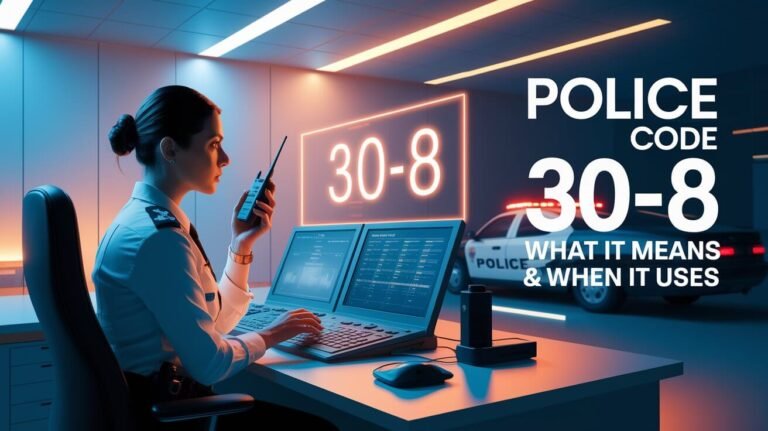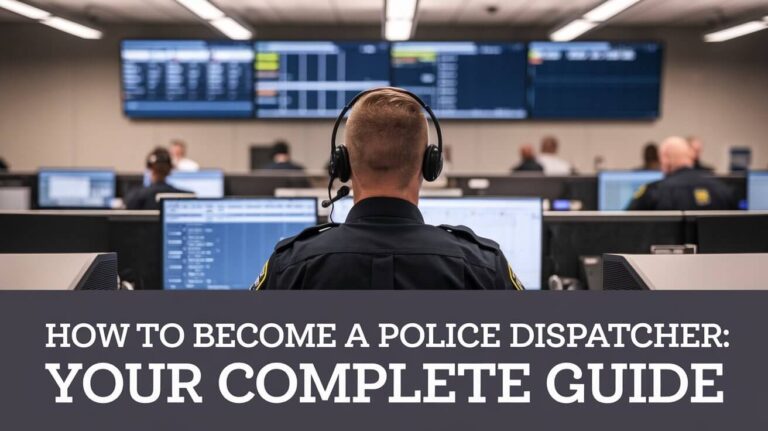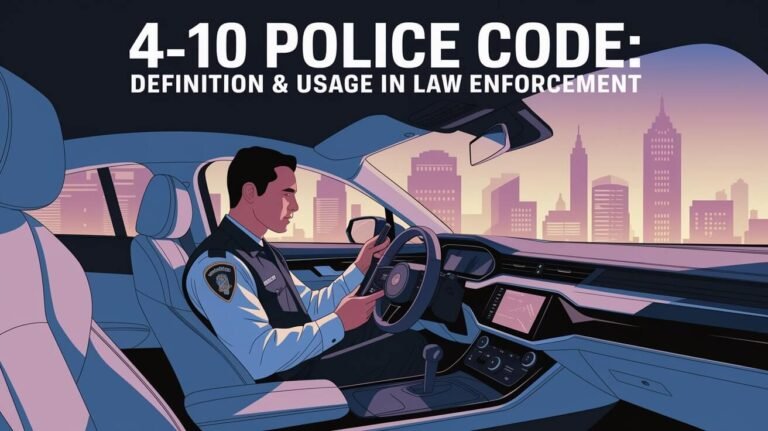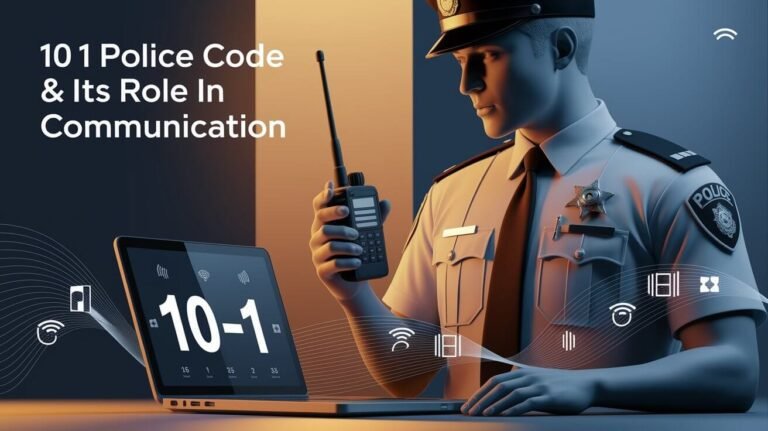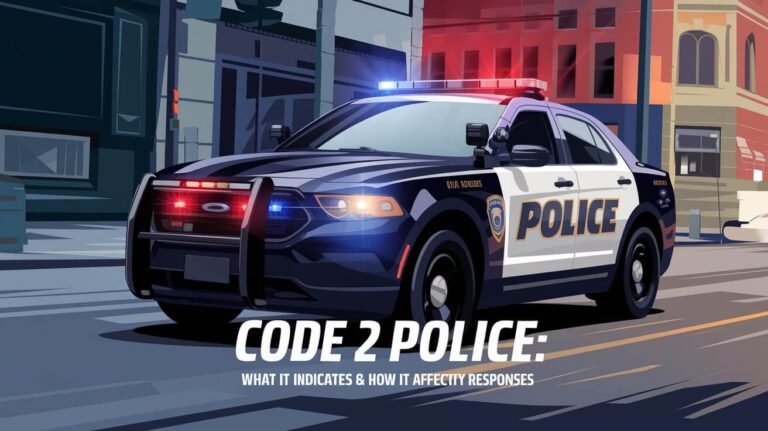Do You Need a Degree to Be a Police Officer? Full Guide
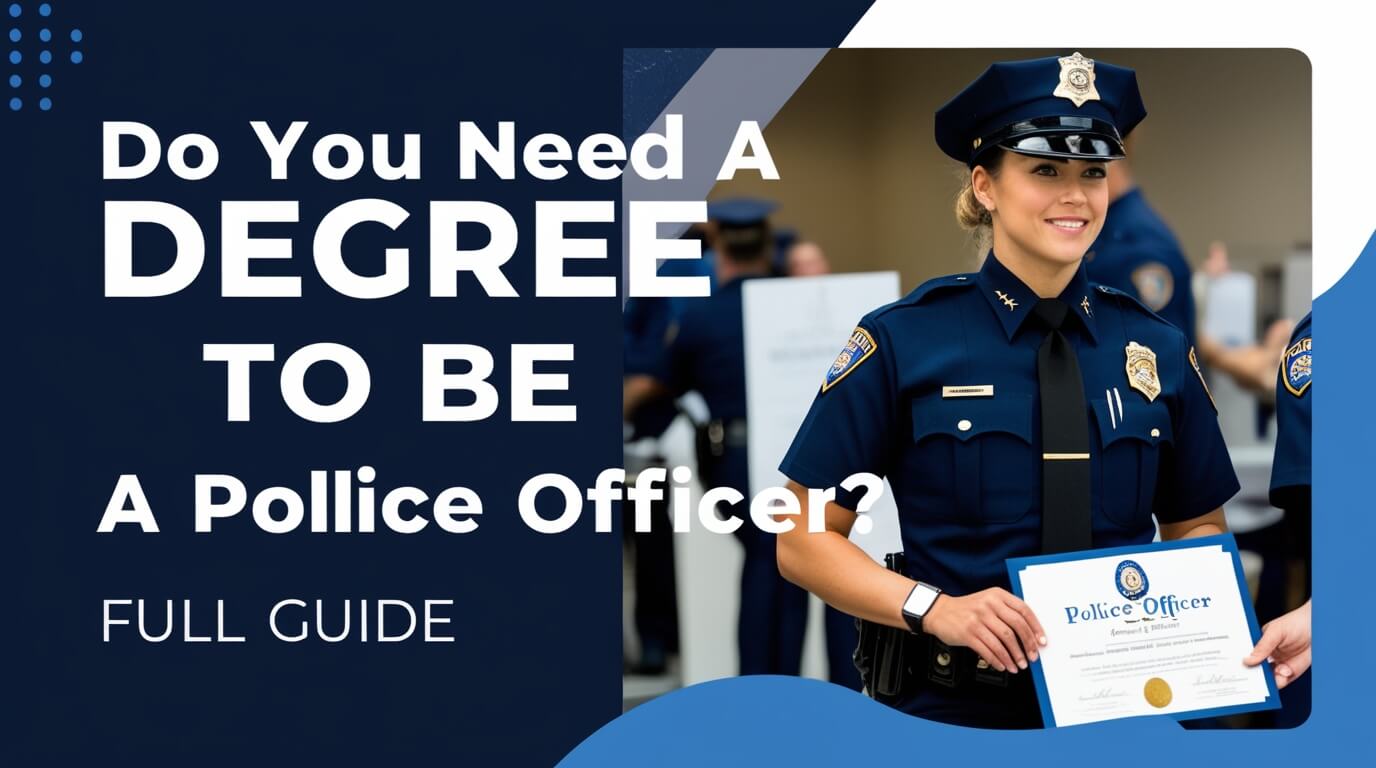
You don’t always need a degree to become a police officer, but having one can open up more opportunities in law enforcement. This guide explores the education requirements for police officers across the United States, the benefits of pursuing higher education in this field, and alternative paths to joining the force.
Introduction: The Changing Landscape of Police Education Requirements
The world of law enforcement is evolving. As society faces new challenges, police departments are adapting their recruitment and training processes. One key area of change is the education level expected of new officers.
The debate: Degree vs. No Degree
Some argue that a college degree equips officers with critical thinking skills and a broader understanding of social issues. Others believe that practical experience and on-the-job training are more valuable.
Why this question matters for aspiring officers
If you’re considering a career in law enforcement, understanding the education requirements can help you plan your path. It affects your time investment, financial decisions, and career prospects.
Basic Requirements for Becoming a Police Officer
Before we dive into education, let’s look at the other basic requirements for joining the force.
Age and citizenship requirements
Most departments require officers to be at least 21 years old and U.S. citizens. Some agencies may hire candidates as young as 18, especially with military experience.
Physical fitness standards
Police work is physically demanding. Departments typically have fitness tests that assess strength, agility, and endurance.
Background check and character assessment
A clean criminal record is crucial. Departments also evaluate candidates’ moral character and decision-making skills.
Driver’s license and clean driving record
Officers need to drive patrol cars, so a valid license and good driving history are essential.
Educational Requirements: State by State Breakdown
Education requirements vary widely across the country. Let’s look at some examples.
States requiring college credits or degrees
Some states, like Minnesota, require at least an associate’s degree or equivalent credits. New Jersey mandates a bachelor’s degree for many positions.
States with high school diploma or GED requirements
Many states, including Texas and Florida, only require a high school diploma or GED to apply.
Federal law enforcement education standards
Federal agencies like the FBI typically require a bachelor’s degree for entry-level positions.
The Role of Police Academies in Officer Training
Regardless of prior education, all new officers must complete police academy training.
What to expect in police academy training
Academies cover law, physical training, firearms use, and practical skills like report writing and arrest procedures.
How academy training complements formal education
While academies provide essential skills, college education can offer a deeper understanding of social issues and critical thinking.
Advantages of Having a Degree in Law Enforcement
A degree isn’t always required, but it can be beneficial.
Career advancement opportunities
Higher-ranking positions often prefer or require degrees. Education can set you apart in promotions.
Specialized roles and units
Some specialized units, like cybercrime or forensics, may require specific degrees.
Higher starting salaries and pay scales
Many departments offer higher starting pay for officers with degrees.
Popular Degree Programs for Aspiring Police Officers
If you’re considering higher education, these programs are particularly relevant.
Criminal Justice degrees
These programs cover law, criminology, and the justice system.
Criminology programs
Criminology focuses on the study of crime, its causes, and prevention strategies.
Other relevant fields of study
Psychology, sociology, and foreign languages can also be valuable in law enforcement.
Alternative Paths: Military Experience and Law Enforcement
Military service is often seen as valuable experience for police work.
How military service can substitute for education requirements
Some departments waive education requirements for veterans or offer credit for military service.
Transferable skills from military to policing
Leadership, discipline, and crisis management skills from military service translate well to policing.
The Debate: Should a Degree Be Mandatory for Police Officers?
This is a hotly debated topic in law enforcement circles.
Arguments for requiring degrees
Proponents argue that degrees provide a broader perspective and better problem-solving skills.
Arguments against mandatory degree requirements
Critics worry that degree requirements could limit diversity in police forces and exclude qualified candidates.
Skills and Qualities That Matter Beyond Education
While education is important, other qualities are crucial for successful policing.
Communication and interpersonal skills
Officers must be able to interact effectively with diverse communities.
Problem-solving and critical thinking
Quick, sound decision-making is essential in high-pressure situations.
Physical fitness and mental resilience
The job can be physically and emotionally demanding.
How to Become a Competitive Candidate Without a Degree
If you don’t have a degree, there are still ways to stand out.
Gaining relevant experience
Consider jobs in security, emergency services, or community outreach.
Volunteer work and community involvement
Showing commitment to your community can impress recruiters.
Developing essential skills through training programs
Look for courses in areas like crisis intervention or foreign languages.
The Future of Police Education: Trends and Predictions
The landscape of police education continues to evolve.
Increasing emphasis on higher education
More departments are encouraging or requiring degrees for advancement.
Specialized training and continuous learning
Ongoing education in areas like technology and community relations is becoming more common.
Conclusion: Making an Informed Decision About Your Police Career Path
Whether you need a degree to be a police officer depends on where you want to work and your career goals.
Weighing the pros and cons of pursuing a degree
Consider your long-term career aspirations and the requirements in your area.
Steps to take regardless of your educational background
Focus on developing relevant skills, staying physically fit, and maintaining a clean record.
Becoming a police officer is a noble goal. While a degree isn’t always necessary, it can provide valuable skills and open up more opportunities. Whatever path you choose, commitment to serving your community is the most important qualification.

